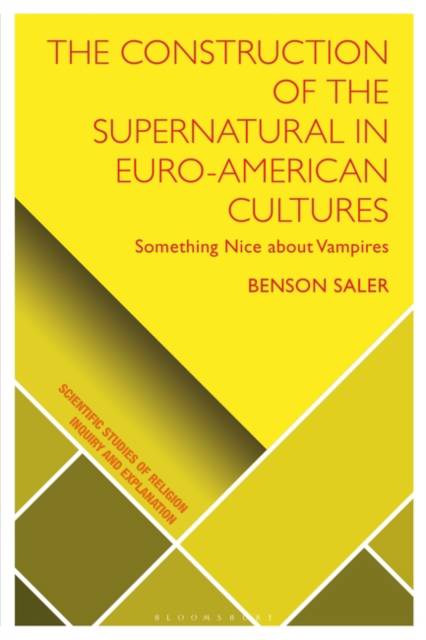
Bedankt voor het vertrouwen het afgelopen jaar! Om jou te bedanken bieden we GRATIS verzending (in België) aan op alles gedurende de hele maand januari.
- Afhalen na 1 uur in een winkel met voorraad
- In januari gratis thuislevering in België
- Ruim aanbod met 7 miljoen producten
Bedankt voor het vertrouwen het afgelopen jaar! Om jou te bedanken bieden we GRATIS verzending (in België) aan op alles gedurende de hele maand januari.
- Afhalen na 1 uur in een winkel met voorraad
- In januari gratis thuislevering in België
- Ruim aanbod met 7 miljoen producten
Zoeken
The Construction of the Supernatural in Euro-American Cultures
Something Nice about Vampires
Benson Saler
€ 67,95
+ 135 punten
Omschrijving
This book describes aspects of the concept of the supernatural from the intellectual history of Euro-American cultures. These samplings shed light on issues in the study of religions and religion rather than attempting to provide either a lineally coherent or exhaustive account of a somewhat fraught and complicated notion. Observations include uses of the term among the ancient Greeks and medieval Christian theologians and 19th- and 20th-century social scientists. This book highlights more recent academics who draw on the cognitive and evolutionary sciences in attempting to make sense of recurrent features of the representations and meta-representations of different cultures. This includes such counter-intuitive notions as "the mysterious" among the Wayuu of Columbia and Venezuela and "vampires" in Europe and North America.
These observations are concluded in a final essay - "Toward a Realistic and Relevant Science of Religion" - which presents considered opinions on how we might draw on the cognitive and evolutionary sciences to establish the foundations for a genuinely scientific study of religions and religion.
Benson Saler sadly passed away shortly after writing this book. An appreciation of his work, written by Armin W. Geertz, is included in this volume.
These observations are concluded in a final essay - "Toward a Realistic and Relevant Science of Religion" - which presents considered opinions on how we might draw on the cognitive and evolutionary sciences to establish the foundations for a genuinely scientific study of religions and religion.
Benson Saler sadly passed away shortly after writing this book. An appreciation of his work, written by Armin W. Geertz, is included in this volume.
Specificaties
Betrokkenen
- Auteur(s):
- Uitgeverij:
Inhoud
- Aantal bladzijden:
- 192
- Taal:
- Engels
- Reeks:
Eigenschappen
- Productcode (EAN):
- 9781350239531
- Verschijningsdatum:
- 18/05/2023
- Uitvoering:
- Paperback
- Formaat:
- Trade paperback (VS)
- Afmetingen:
- 156 mm x 234 mm
- Gewicht:
- 272 g

Alleen bij Standaard Boekhandel
+ 135 punten op je klantenkaart van Standaard Boekhandel
Beoordelingen
We publiceren alleen reviews die voldoen aan de voorwaarden voor reviews. Bekijk onze voorwaarden voor reviews.









